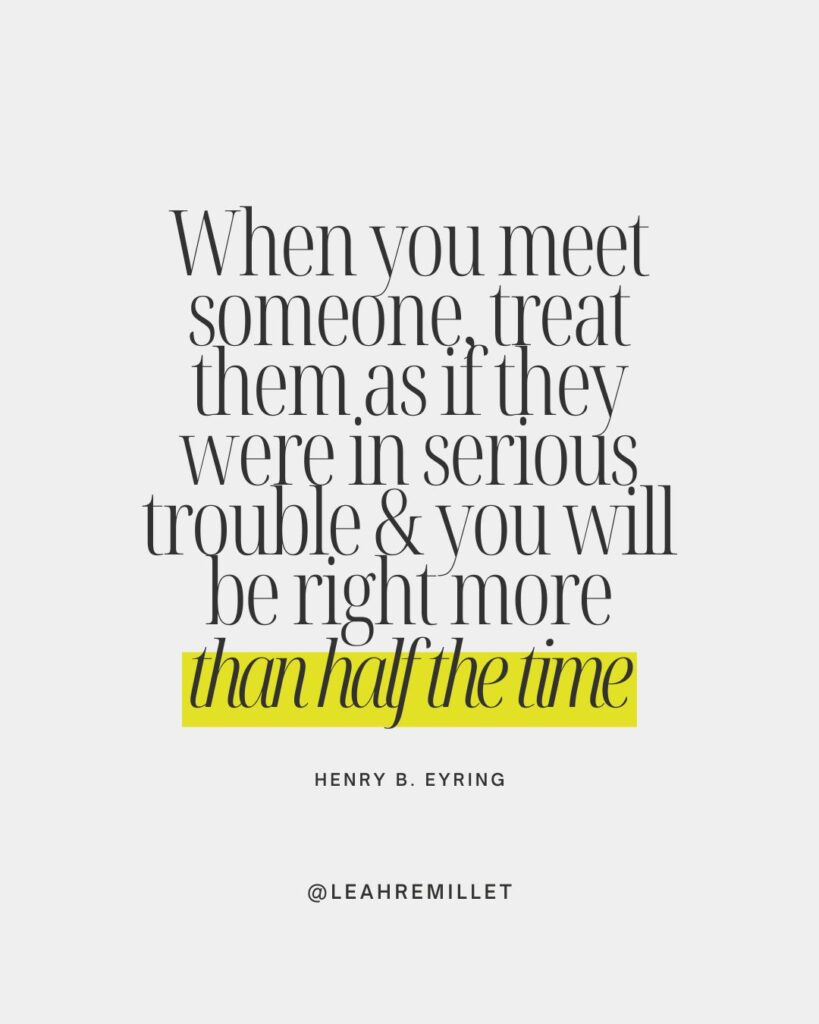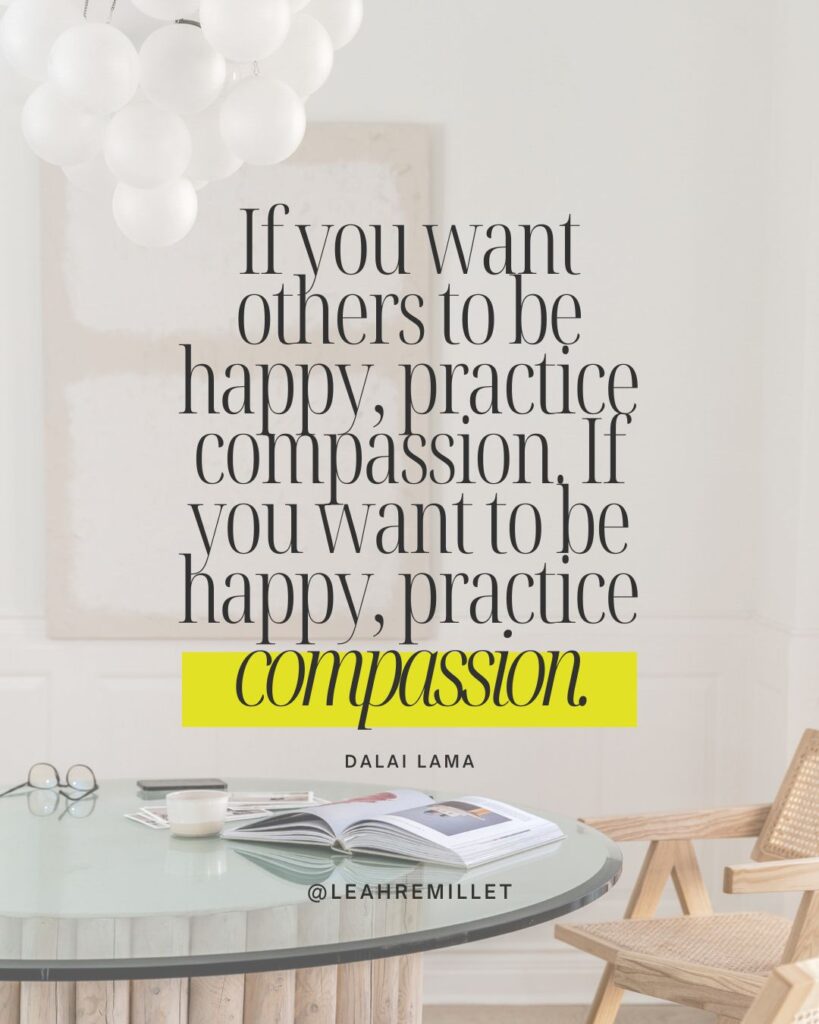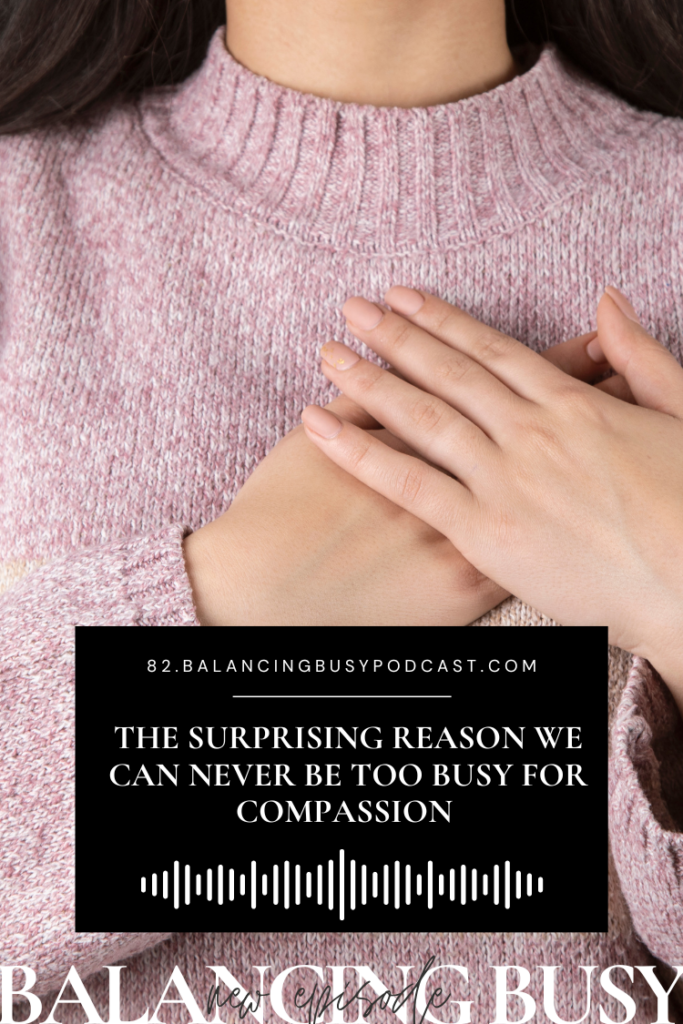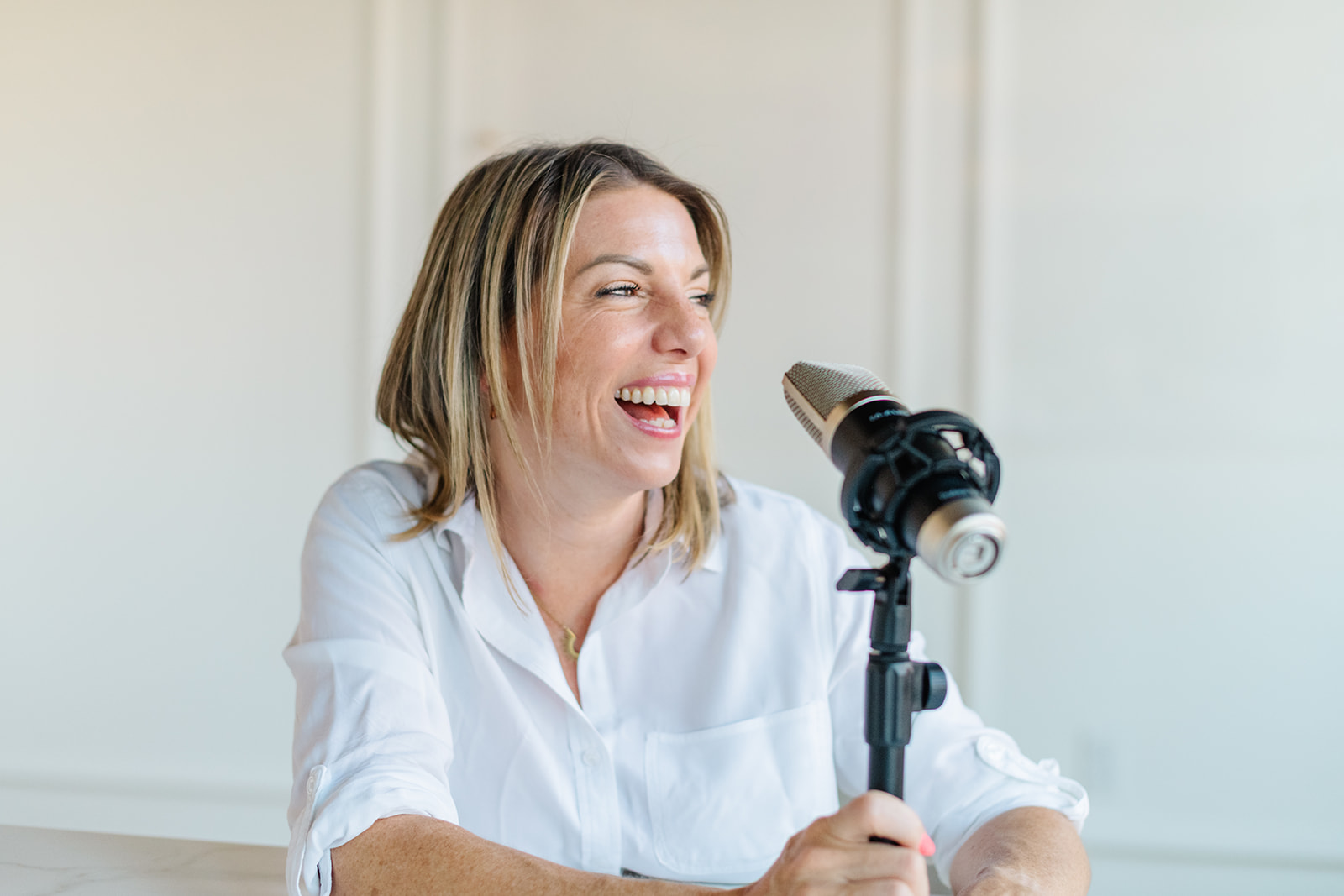[00:00:00] I’ve heard that you can’t offer compassion to others if you don’t practice self compassion. Okay. But I wonder if it isn’t the other way around too, if I can’t show love, empathy, and compassion to others.
[00:00:46] Leah: Wouldn’t it be harder for me to love who I am? In the heart of the scientific world at Stanford Medical School Center for Compassion and Altruism Research and Education, Inaugural Science of Compassions Conference in 2012, two researchers, okay? They’re Steve Cole from the University of California, Los Angeles, and APS fellow Barbara Fredrickson from the University of North Carolina.
[00:01:11] Leah: In Chapel Hill. Embark on a quest to unravel the intricate relationship between happiness and health. They wanted to know if inflammation in the body was lower the happier that you are. Inflammation is the root of cancers and various diseases, and it’s always found higher in bodies of those who carry the greatest degrees of stress.
[00:01:33] Leah: So. If you were happier, then wouldn’t it go to make sense that there would be lower levels of inflammation? Could our happiness truly be a shield against the relentless onslaught of some of these diseases and stress and Attacks on our body, Colin Fredrickson gathered a group of individuals who describe themselves as very happy and ventured deep into this labyrinth of cellular inflammation.
[00:02:04] Leah: This inflammation, like an enigmatic villain, tends to thrive in the shadows of stress. Lurking in the corner of our lives. Common wisdom might suggest that the happier we are, the less inflammation we would bear. However, there was a plot twist. But before I get to that, let me tell you the story from the life of Stephen R.
[00:02:27] Leah: Cuppey. If you’ve read his Seven Habits, then this might be familiar to you. He said, I remember a mini paradigm shift I experienced one Sunday morning on a subway in New York. People were sitting quietly, some reading newspapers, some lost in thought, some resting with their eyes closed. It was a calm, peaceful scene.
[00:02:47] Leah: Then suddenly, a man and his children entered the subway car. The children were so loud and rambunctious that instantly, the whole climate changed. The man sat down next to me and closed his eyes, apparently oblivious. To the situation the children were yelling back and forth throwing things even grabbing people’s papers It was very disturbing and yet this man sits there next to me doing nothing.
[00:03:15] Leah: It was difficult not to feel irritated. I could not believe that he could be so insensitive to let his children run wild like that and do nothing about it, taking no responsibility at all. It was easy to see that everyone else on that subway felt irritated. So finally, with what I felt was an unusual amount of patience and restraint, I turned to him and said, Sir.
[00:03:43] Leah: Your children are really disturbing a lot of people. I wonder if you could control them a little more? The man lifted his gaze, as if to come to a consciousness of the situation for the first time, and said softly, Oh, you’re right. I guess I should do something about it. We just came from the hospital where their mother died about an hour ago.
[00:04:08] Leah: I don’t know what to think. I guess they don’t know how to handle it either. Perspective is everything. Now here’s the problem. We, for the most part, we don’t know what others are going through. We don’t know if today has been particularly stretching and hard. We don’t know if this is the day when they’re just pleading to make it through.
[00:04:33] Leah: That’s why I loved the quote from Henry B. Eyring. It was something taught to him when he was a young man. He’s in his nineties today and I’m so grateful that he passed it on to the world. I’ve thought of it so many times over the years. He said, when you meet someone. Treat them as if they were in serious trouble and you will be right more than half the time.
[00:04:57] Leah: I remember this particular day, it, I think it must have been in 2011. I was just coming back from an eye doctor appointment for our youngest son. He was three. Earlier that week, his eye had started to roll in. It would just be for a few moments. Then it happened again. Then it happened again, but it just stayed that way.
[00:05:20] Leah: The doctor explained to me that he had several eye conditions. He was nearsighted and farsighted. He had no depth perception and would most likely need several surgeries. He had been barely seeing the world. It had been mostly these fuzzy shapes and he’d just learned to navigate. I left that appointment, this young, scared, devastated mom.
[00:05:44] Leah: I was so angry at myself because I felt like I should have realized and seen the signs and suddenly I was recognizing these things that hadn’t been obvious to me then but now were. I was mad at myself for not figuring it out sooner. I was scared of the surgeries and possible complications. I just felt so small and weak and powerless.
[00:06:13] Leah: I was in this complete daze and you know, the chime that goes off when you need gas, it bings. And so I pulled into this gas station and I started pumping gas and honestly I just, I couldn’t hold it back anymore. And I just remember that Tears were just streaming down my face and I made sure that I kept my back to the car and I was just staring at that little ticker, you know, that’s saying how many gallons are going into the car because I didn’t want the kids to see me crying.
[00:06:42] Leah: I didn’t want to show that I was upset. I was trying to keep this brave face for my little guy and the other two. And so these tears are just silently streaming down my face as I try to stare at that little ticker screen. On the gas pump. And then, you know when you can feel someone looking at you? Well, I could feel that.
[00:07:02] Leah: And I, I look up and I make eye contact with this beautiful little white haired old woman who is sitting in the passenger seat of another car that’s directly across. And she simply mouthed, it will be okay. That was the entire exchange that happened between us. And I have never forgotten it. And she was right.
[00:07:27] Leah: It was okay. I can think of other experiences. There’s two, actually. When the kindness of a stranger taking the time, even when it was really inconvenient, made all the difference. One was They’re actually both from our year that we traveled internationally. So, one of our first places we went to was this little, tiny, adorable town called Peebles in Scotland.
[00:07:55] Leah: is magical and so amazing. And we had literally gone from plane to train to bus to get out to this little tiny town. Well, we’re on this bus and we have the most absurd amount of luggage. I mean, I look back and it’s embarrassing how much luggage we’re carrying, but we were traveling for a year. We thought we needed it all.
[00:08:18] Leah: So we have all of this luggage. We ended up ditching more than half of it. Um, six weeks into the trip. But we have all this luggage and people are asking us, you know, where are you moving? What are you doing? And we’re kind of explaining it. We, we get off the bus at our little stop in Peebles and this, this older man with this beautiful, thick Scottish accent, just Picks up the suitcases, a couple of them and says, I know where you’re going, follow me.
[00:08:49] Leah: And he literally pushed our suitcases for blocks and blocks and got us all the way to the front of this little bank. Our Airbnb was a little flat, was on top of the bank and, um, made sure we were there. Another time, this is months and months later, we were in Tokyo, Japan. We were at the train station.
[00:09:14] Leah: Trying to find our train and we were so overwhelmed and so lost. I mean, we had absolutely No idea. We don’t speak the language. We can’t read the signs. We are frantically trying to get our translator app to Make sense of where we are because we’re gonna miss this train if we don’t figure out where to go I remember feeling stressed.
[00:09:36] Leah: I think we were even a little bickery I mean we weren’t like we weren’t looking like this wonderful darling family it was hard and we were stressed and we were on a deadline and we were about to miss this train and We’re trying to figure out what to do and this woman walked up and she didn’t speak English and we didn’t speak Japanese and she just put out her hands and We put the tickets in her hands and she looked at him and she nodded and kind of waved her hand and we were so far away from the correct platform.
[00:10:11] Leah: And she led us all the way to the platform, put us on the train, spoke to the ticket master and got us onto the train and then waved. I remember thinking, Did she miss her train to get us on ours? Who has that much extra time at the train station to go so far out of their way and get these foreigner, loud, don’t look that happy friendly strangers onto their right train?
[00:10:44] Leah: But this woman did, and I have never forgotten that. And that brings us to the conclusion of Cole and Fredrickson’s research. They had a theory that if stressed people carried more inflammation, then it made sense that those who were more happy should carry less inflammation.
[00:11:05] Leah: Well, it turns out that not all happiness is created equal. In fact, those who derive their joy from what is often called the good life or it’s really the pursuit of pleasure, they had inflammation levels that were still elevated. But there was a silver lining, a beacon of hope amid this research. It came in lives filled with compassion.
[00:11:28] Leah: The hero of our story was the happiness born from a rich life in meaning and purpose, one that transcends. The self and extends its reach to others, one that is not so focused on busy that we miss the moments to connect its compassion, altruism, a profound sense of greater meaning that defines this extraordinary existence.
[00:11:57] Leah: I’ve often said and shared if we’re so busy in our own lives, how will we ever be able to look up and notice those who need us? The lesson of the research became clear, and it’s really about that second great commandment, the one that says to love others as yourself. It really affects our bodies on a molecular level.
[00:12:23] Leah: It turns out perhaps the trendy theme song of our generation that flaunts self before others isn’t actually serving us. The real good life is rooted in purpose, in compassion, in a pursuit of something greater Then ourselves in slowing down enough to be able to see and recognize when our proverbial neighbor needs us,
[00:12:50] Leah: there were those who considered themselves very happy and did, in fact, have those lower levels of inflammation, and it was those whose happiness came in serving others,
[00:13:01] Leah: but maybe none of that research was even necessary. The Dalai Lama seemed to already know that when he said, if you want others to be happy, practice compassion. If you want to be happy, practice compassion. So dear listeners, as we unravel the mysteries of happiness and health, as we try to balance the busyness, one word comes to mind.
[00:13:24] Leah: Recently, one of my kids texted me and they were frustrated with some friends and just something that was going on. And I responded with one single word, perspective. We can’t know what someone is experiencing. The person who cuts you off, give them the benefit of the doubt. One of my girls loves to imagine that they have to go to the bathroom so incredibly badly that they couldn’t help themselves.
[00:13:49] Leah: Or maybe that rude attendant, or customer service rep, or teller. Consider what kind of day, or month, or life that they’ve had to make them so bitter. When you see the person holding the sign at the intersection, Don’t waste time wondering what they did to get themselves there. Know that if you had to endure their experiences, you could be there too.
[00:14:12] Leah: I’ll leave you with one last quote from another nonagenarian. Russell M. Nelson is 99 years old, but I believe he shared this at 96. He said, giving help to others, making a conscious effort to care about others as much as or more than we care about ourselves. It’s our joy, especially I might add when it is not convenient and when it takes us out of our comfort zone.
[00:14:40] Leah: Thank you so much for listening to this episode and the balancing busy podcast and speaking of kindness and generosity. Just taking time to serve others. I just want to say thank you. Every time one of you leaves a review on Apple or Audible, it means the world. I recently saw this review from G V or G Vandergrift, G Vandergrift.
[00:15:07] Leah: Uh, she said, Leah is so relatable in every episode. Love the mixed of solo and guest episodes. Each episode has a takeaway that you can implement in your life right away. She called it a must listen and so relatable G Vandergrift and everyone else. Thank you so so much for taking time out of your day to Leave a review and share why this podcast might help someone else balance the busy it not only blesses other people’s lives that you know, maybe they pick up this podcast, but It’s huge for me too.
[00:15:46] Leah: So thank you. Thank you for that. Thank you for listening. And I’ll see you next week.
Hide Transcript




you said: